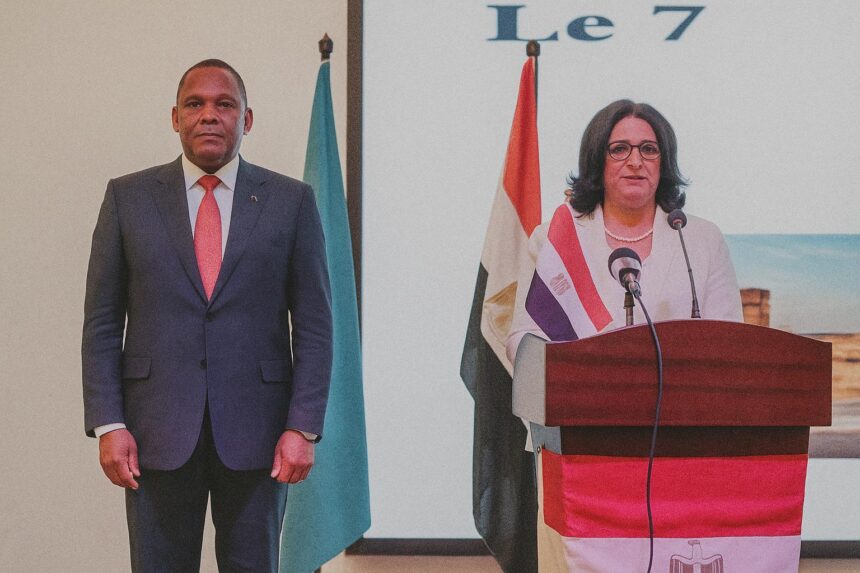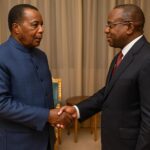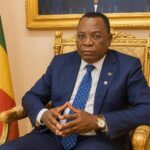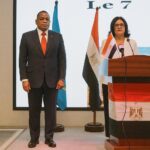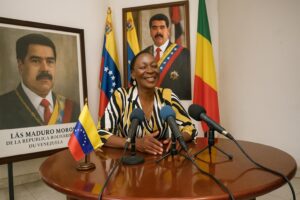Strategic Roots Forged in the Post-Independence Dawn
When Brazzaville secured its sovereignty in August nineteen-sixty, Cairo was among the first African capitals to recognise the new Republic of Congo, framing a partnership that would soon be knitted into the fabric of the Organisation of African Unity (African Union Archives 2022). Shared anti-colonial sentiment and the charisma of the era’s founding fathers created a foundation that has proved unusually resilient. Even as global alignments oscillated from Cold War bipolarity to the current multipolar haze, diplomatic channels between the two states have remained conspicuously open, often discretely yet effectively.
- Strategic Roots Forged in the Post-Independence Dawn
- Education and Defence Training: The Quiet Instruments of Influence
- Economic Convergence: From Ports to Power Lines
- Green Transition Anchored in Vision 2030 and the Congo Basin
- Conflict Mediation and Multilateral Standing
- Navigating Continental and Extra-Continental Alignments
- Prospects for a Mutually Reinforcing Horizon
Such continuity carries strategic weight. For Egypt, Congo-Brazzaville offers a Francophone gateway to Central Africa, an axis that complements the Arab state’s traditional Nile and Mediterranean theatres. For Congo, Egypt embodies a bridge to the wider Middle East as well as a model of large-scale infrastructural ambition. The symbolism of Egypt’s twenty-third of July Revolution therefore resonates beyond national borders, speaking to wider continental aspirations of sovereignty tempered by pragmatic development.
Education and Defence Training: The Quiet Instruments of Influence
Soft power often travels by classroom rather than by megaphone. Over the last ten years, more than eight hundred Congolese officers and civil servants have attended courses under the Egyptian Agency of Partnership for Development, covering cybersecurity, counter-terrorism, hydro-agronomy and diplomatic protocol (Egyptian Agency of Partnership 2023). Alumni now populate mid-level and senior ranks in Brazzaville’s ministries of defence, interior and agriculture, creating an epistemic community that intuitively understands Egyptian strategic thinking.
The human dividend is two-way. Congolese trainees contribute field experience from the dense equatorial basin that has proved invaluable for Egyptian contingents deployed in United Nations peacekeeping missions in the Central African Republic (UN Department of Peace Operations 2024). That virtuous feedback loop underscores the modern reality that capacity-building is no longer merely aid; it is co-produced security.
Economic Convergence: From Ports to Power Lines
Bilateral trade, though still modest at roughly two hundred million US dollars annually, has grown by a compound rate of seven percent since twenty-nineteen according to the African Development Bank. Egyptian conglomerates active in pharmaceuticals and prefabricated housing have installed production units in Pointe-Noire’s special economic zone, lured by tax incentives and direct maritime links via the Suez Canal. Meanwhile, Congo’s timber and manganese increasingly transit through Alexandria for onward shipment to European and Gulf markets (Port Authority of Alexandria 2023).
Energy has become the conversation’s leading edge. While Egypt advances the El-Dabaa nuclear project with Russian technology, Congolese engineers have been invited to observe safety drills and fuel-cycle regulations under the aegis of the International Atomic Energy Agency (IAEA 2023). Brazzaville, for its part, has offered equity stakes to Egyptian investors in the Sounda hydroelectric cascade on the Kouilou River, envisioning a north-south power corridor that could eventually interconnect with the Grand Inga scheme on the Congo River.
Green Transition Anchored in Vision 2030 and the Congo Basin
Cairo’s Vision Egypt 2030 foregrounds a pivot toward renewables and circular-economy protocols. That blueprint aligns neatly with Congo-Brazzaville’s National Development Plan 2022-2026, which elevates climate-smart forestry and carbon-credit monetisation (Congo Ministry of Planning 2023). During the twenty-seventh UN Climate Conference in Sharm el-Sheikh, the two states co-sponsored a side event on the valuation of blue carbon assets in mangrove ecosystems bordering the Atlantic Coast, arguing that African sequestration services merit premium pricing on global markets (UNFCCC Proceedings 2023).
Analysts in Addis Ababa and Nairobi note that such coordination reinforces Africa’s negotiating leverage in multilateral fora, bridging the ecological heft of the Congo Basin with the diplomatic megaphone Egypt enjoys as a former COP chair (Brookings Institution 2024). The emerging narrative is not of donor and recipient but of co-champions shaping the rules of an unfolding green economy.
Conflict Mediation and Multilateral Standing
Egypt’s track record as a mediator in the Israeli-Palestinian dossier is well-documented; less publicised is Congo-Brazzaville’s discreet facilitation role in the dialogue between Sudanese transitional factions hosted in Oyo in early twenty-twenty-three (African Union Peace and Security Council 2023). Diplomats from both nations argue that lessons distilled from these theatres can be pooled into a combined doctrinal handbook for African Union rapid response teams.
On peacekeeping, Egypt remains one of the continent’s top uniformed contributors, while Congo’s recent tenure on the United Nations Human Rights Council underscored its commitment to normative multilateralism. The convergent emphasis on sovereignty, non-interference and negotiated settlement sets a tone of principled pragmatism that resonates with partners from Riyadh to Brussels.
Navigating Continental and Extra-Continental Alignments
Both capitals must finesse complex external linkages: Egypt balances United States security assistance with expanding BRICS engagement, whereas Congo calibrates relationships with China’s Belt and Road, French oil majors and the African Continental Free Trade Area. The bilateral channel offers a diplomatic laboratory in which to test cooperative hedging mechanisms, enabling each side to diversify without alienating long-standing patrons.
Officials in Brazzaville privately acknowledge that the global liquidity squeeze has reopened debates on debt sustainability. Cairo’s recent success in securing International Monetary Fund tranches tied to structural reform offers instructive precedents for Congo’s ongoing dialogue with multilateral lenders (IMF 2024). The moral is clear: peer learning among Southern partners can mitigate conditionality fatigue and widen policy bandwidth.
Prospects for a Mutually Reinforcing Horizon
Looking ahead, negotiators are drafting a five-year roadmap that bundles defence logistics, digital banking interoperability and joint cultural festivals under a single monitoring framework slated for signature in twenty-twenty-five. People-to-people connectivity is expected to deepen once EgyptAir finalises feasibility studies for a direct Cairo–Brazzaville route, an ambition warmly endorsed by Congo’s civil aviation authority.
Veteran observers caution that success will depend less on grandiose ribbon-cuttings than on incremental policy harmonisation. Yet the mood in both capitals is unmistakably confident. As Minister Jean Claude Gakosso remarked during the seventy-third Egyptian National Day reception, “We inherit not only history but a duty to refresh it.” In an era where alliances are often measured by transactionality, the Egypt-Congo relationship stands out for its mix of continuity and adaptive innovation—an old friendship still nimble enough to matter.

